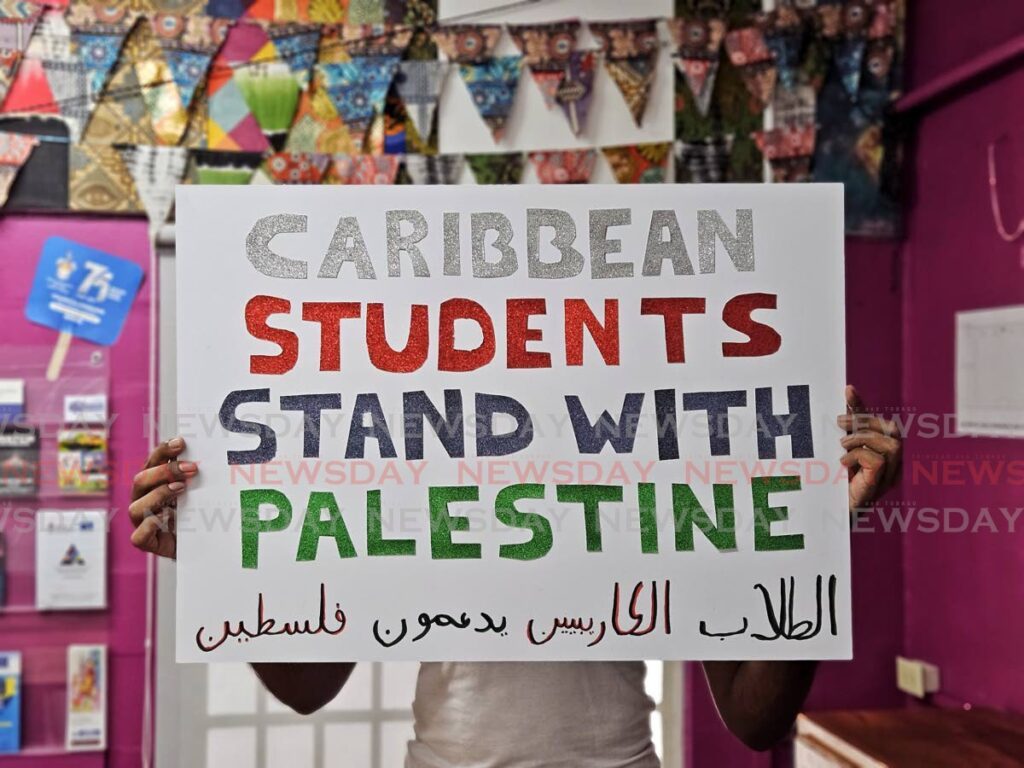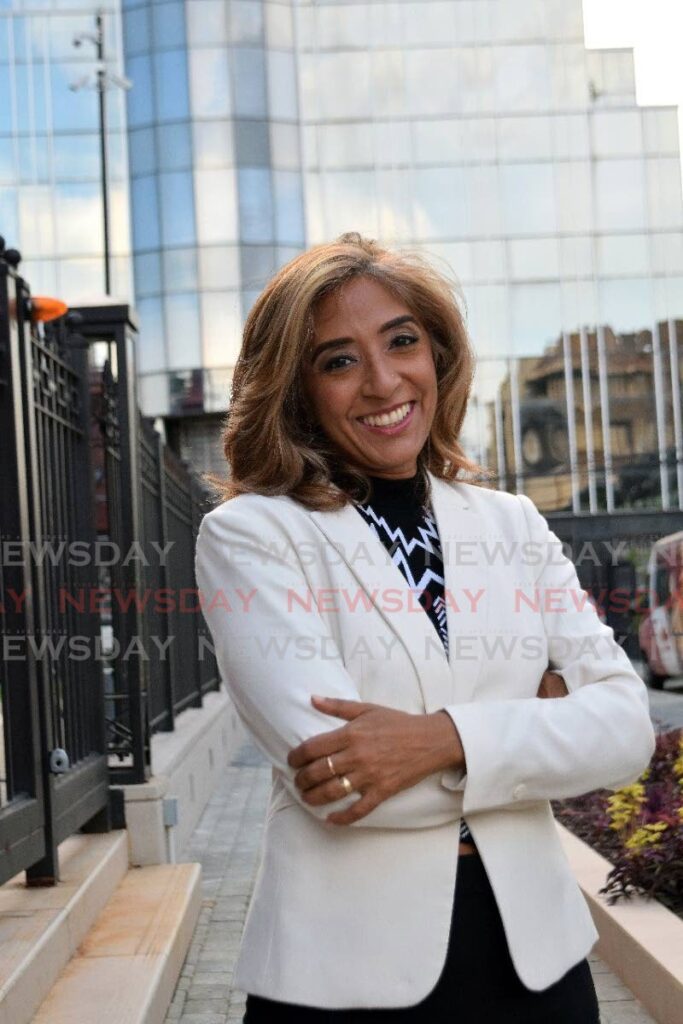Students for Palestine

Dr Gabrielle Jamela Hosein
IRONIES ABOUND in the ongoing Israeli destruction of Palestine.
On some US news stations, there is a focus on the Israeli and other hostages violently captured by Hamas.
However, the thousands held in Israeli detention centres are not called hostages by the media. Indeed, an exchange release was one of the reasons for Hamas’s violent action.
Al Jazeera reports there are more than 5,000 Palestinians, including 33 women and 170 children, held in Israeli prisons under various military orders. Since the outbreak of the second Intifada in 2000, more than 12,000 Palestinian children have been detained by Israeli forces. If we referred to them as hostages, violently captured and held in conditions of terror, how might that differently frame the situation today?
One of the repeated on-screen hypocrisies has been the morally bankrupt (though financially profitable) position of Western states on this crisis. How can the US utter a word against Russia’s goal of annexing parts of Ukraine? How can it support Taiwan in the face of China’s claim? Political nuances are being obliterated while (or, perhaps, so that) defence contractors make billions.
On the weekend, BBC broadcast Britain’s King Charles solemnly commemorating veterans and victims of World War II. Yet the images that most remain etched in our minds are not just fighting on the front, but freeing of captives from German concentration camps, the majority of whom were Jews persecuted because of virulent anti-Semitism.
Today, Palestine is a concentration camp dispossessing millions and killing thousands. Language has rightfully shifted from the effective image of an open-air prison, which conveyed the ubiquity of surveillance, domination and immobility, because a prison implies Palestinians committed some kind of crime.
Rather, the parallel with the concentration camps of WWII is that Palestinians today, like Jews, people living with disabilities, those of other ethnic groups and those from LBGT communities during World War II, are considered to be without the right to exist or a place to call home.
A concentration camp therefore names the necropolitics or genocidal formation of a state power and its territory-thirsty leadership, once in the form of Adolf Hitler and now in the form of the extremist Benjamin Netanyahu.
Yet even in the midst of remembrance, the ironic connection between the two moments – then and now – is severed, both by the press and by politicians.
In this way, "then" and "now" are ironies of disconnection.

The 1970 days of Black Power in the Caribbean have been lauded as the height of student radicalism, particularly at the UWI, which named Daaga Hall after an 1837 mutineer named Daaga. Ironically, it’s also orderly to keep such challenge to authority in a nostalgic past, where it cannot threaten in the way that students would have then. Caribbean students were staging sit-ins, occupying buildings and protesting without permission from those in power, whether in governments or universities.
Today, students are calling for universities and governments to be divested of Israeli funding, are walking out of classes, and are defying university and government administrations. Columbia University suspended Students for Justice in Palestine and Jewish Voice for Peace for holding unauthorised protests that did not comply with university policies. The student groups pushed back by calling the decision an "appalling act of censorship and intimidation by the administration."
At St Augustine, students engaged in their own protest action, chalking on walkways traversed by their peers. Their messages included, “Caribbean students stand with Palestine,” “Queers for Palestine,” “Hindus for Palestine,” and “Muslims for Palestine,” and much more. Students are also building intersectional coalitions across social media spaces, beyond the control and politically left of older conservatives.
In this way, they speak alongside other Caribbean feminist groups such as Intersect Antigua. Feminitt Caribbean also extended “unwavering solidarity with the people of Palestine” and called for “support to civilians in Gaza and the West Bank – as LGBTQ+ people, people who menstruate, and those who are pregnant are at extreme risk of violence…”
The al Shifa hospital remains under fire while the Israeli army, without irony, claims it is Hamas headquarters. Shutting off its power and water constitutes a war crime. What more is required to ignite an era of dissent and protest against these historical and geopolitical ironies and their unconscionable mounting casualties?
One can only hope that, with the return of words such as “genocide,” “apartheid,” “concentration camp” and “settler colonialism,” youth and students are being radicalised against the status quo, those holding power and how they use it – for that is what "now" most desperately needs.
Diary of a mothering worker
Entry 519
motheringworker@gmail.com

Comments
"Students for Palestine"